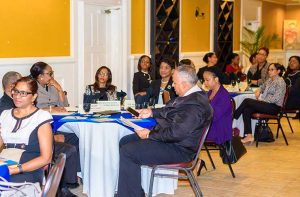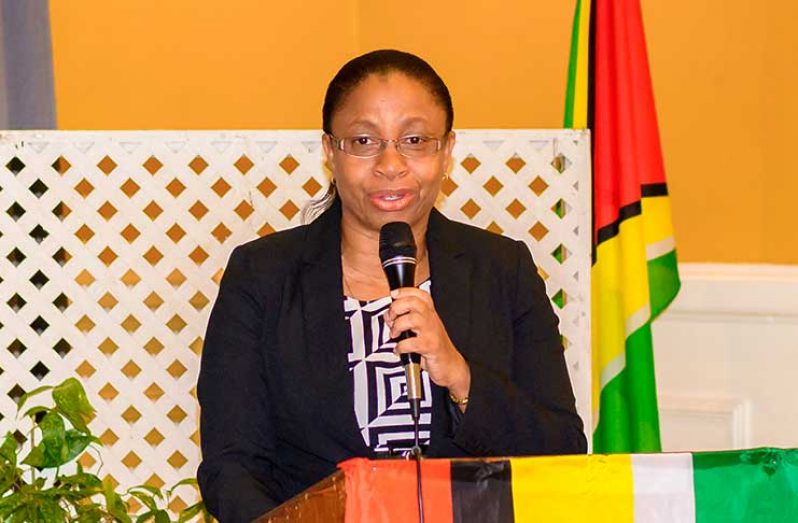THE psychological skills of officers involved in sexual offence cases from start to finish were sharpened during a two-day training programme organised by the Judiciary in partnership with the United Nations Children’s Fund (UNICEF).
The programme, which was facilitated by psychologists, Dr. Dianne Douglas and Dr. Natalie O’Brady of Trinidad and Tobago, concluded on Saturday at the Georgetown Club with over 55 participants in attendance.

They included judges and magistrates, police officers from the Special Victims’ Unit, representatives from the Child Care Protection Agency and the Sexual and Domestic Violence Policy Unit, along with representatives from non-government agencies such as Red Thread Guyana, Help and Shelter, Blossom and Child Link.
In an interview with Guyana Chronicle on Saturday, Chief Justice (ag) Roxane George-Wiltshire said the handling of sexual offence cases is a multi-disciplinary process, and the programme brought together the key players.
“We would recognise that the process of addressing a sexual offence case is a continuum, starting from the police and sometimes the NGOs as the first responders all the way to the court with the magistrates and judges, and we have to understand the psychological effects that those cases have on the victims,” the Chief Justice explained.
Chief Justice George-Wiltshire said in addition to focusing on the psychological issues faced by victims and or survivors, the programme addressed the issue of secondary trauma.
“Very importantly, we dealt with how we deal with our own trauma, secondary trauma, understanding ourselves, understanding our past and where we are, because we have to understand that at the end of the day all of us are human beings. We go through life experiences which influence how we deal with people… we have to manage how our life experiences may shape how we treat and deal with persons,” she further explained.
At the opening ceremony of the training programme on Friday, Chancellor of the Judiciary (ag) Justice Yonette Cummings-Edwards had underscored the need for employment of psychological skills for the improvement of services provided by the Sexual Offences Court, as well as the improvement of the skills of court personnel.
“Our Sexual Offences Act, which was passed in 2010, itself provides for training in this regard. It is a comprehensive, forward thinking, integrated piece of legislation passed by our parliament,” the Chancellor (ag) had said.
Presently, support services are being provided to witnesses to help reduce secondary victimisation and trauma associated with the sexual offence cases. Such assistance is provided by the Ministry of Social Protection as well as non-governmental organisations.
Notably, five months after the establishment of the Sexual Offences Court, a total of 14 cases have been heard to date with some nine persons being found guilty.



.jpg)










